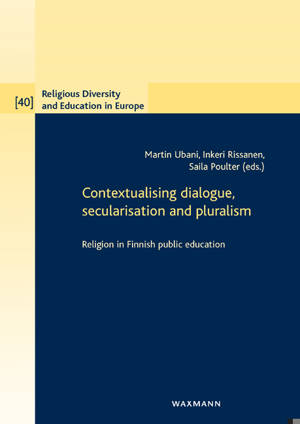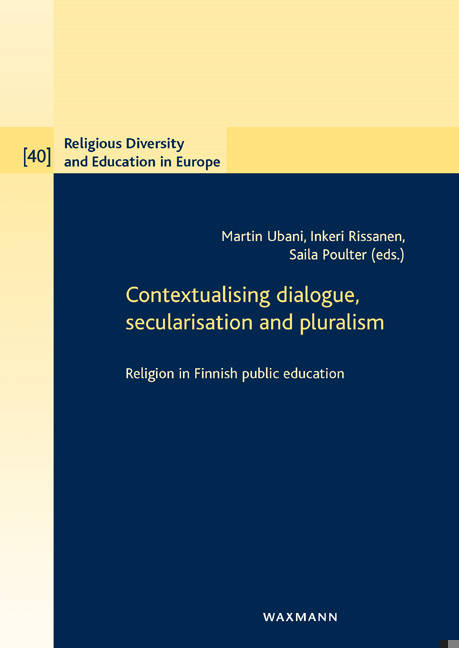
Door een staking bij bpost kan je online bestelling op dit moment iets langer onderweg zijn dan voorzien. Dringend iets nodig? Onze winkels ontvangen jou met open armen!
- Afhalen na 1 uur in een winkel met voorraad
- Gratis thuislevering in België vanaf € 30
- Ruim aanbod met 7 miljoen producten
Door een staking bij bpost kan je online bestelling op dit moment iets langer onderweg zijn dan voorzien. Dringend iets nodig? Onze winkels ontvangen jou met open armen!
- Afhalen na 1 uur in een winkel met voorraad
- Gratis thuislevering in België vanaf € 30
- Ruim aanbod met 7 miljoen producten
Zoeken
Contextualising dialogue, secularisation and pluralism
Religion in Finnish public education
€ 37,45
+ 74 punten
Omschrijving
"Dialogue", "secularisation" and "pluralism" have been key concepts in international discussions concerning religion, public space and education for the past decades. Due to increasingly intense intercultural and transnational movements, national educational systems face new challenges in negotiating with the multitude of civic identities and memberships, those being also related to religions and worldviews. The purpose of this volume is to enrich and complement the discussion concerning religion in education by contextualising the respective phenomena in the current Finnish educational policy and practice, as well as by drawing together empirical and theoretical observations from several case analyses. Even though international comparative studies are integral for the development of knowledge on religion and education, this localised approach concentrating on the Finnish education system provides an interesting case for the analysis in many ways: The Finnish society is rather slowly becoming diverse and plural, whereas the processes of secularisation have recently been quite rapid. The volume at hand discusses how these changes of secularisation and pluralisation in a religious landscape create new conditions for understanding educational dialogue amidst diversity.
Specificaties
Betrokkenen
- Uitgeverij:
Inhoud
- Aantal bladzijden:
- 232
- Taal:
- Engels
- Reeks:
- Reeksnummer:
- nr. 40
Eigenschappen
- Productcode (EAN):
- 9783830940142
- Verschijningsdatum:
- 8/08/2024
- Uitvoering:
- Paperback
- Formaat:
- Trade paperback (VS)
- Afmetingen:
- 170 mm x 244 mm
- Gewicht:
- 376 g

Alleen bij Standaard Boekhandel
+ 74 punten op je klantenkaart van Standaard Boekhandel
Beoordelingen
We publiceren alleen reviews die voldoen aan de voorwaarden voor reviews. Bekijk onze voorwaarden voor reviews.










